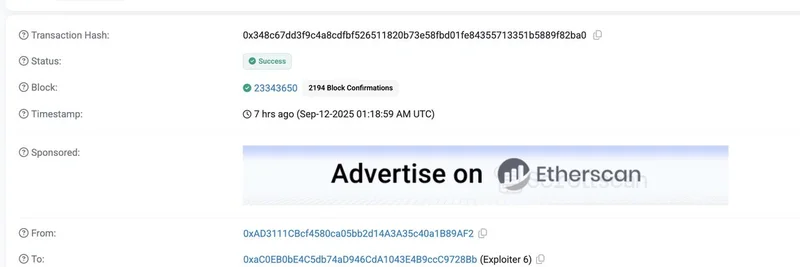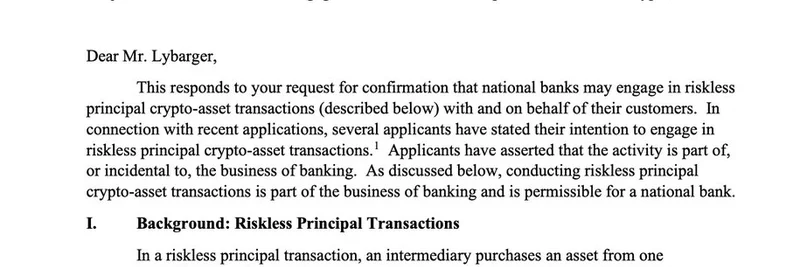In the ever-unpredictable crypto space, where fortunes flip faster than a meme token pump, a recent incident has everyone talking. JP, known on X as @jpthor, co-founder of THORChain and Vultisig, just got hit with a massive scam—losing around $1.3 million to what appear to be North Korean hackers. And the kicker? There's some serious irony involved, as pointed out by on-chain sleuth ZachXBT.
暗号資産の世界は予測不能で、ミームトークンの急騰よりも速く運命がひっくり返ることがあるが、最近の出来事は皆の話題をさらっている。THORChainとVultisigの共同創設者で、Xでは@jpthorとして知られるJPが大規模な詐欺に遭い、北朝鮮系と見られるハッカーに約130万ドルを奪われたのだ。しかも皮肉なことに、オンチェーンの調査者ZachXBTが指摘するような事情が絡んでいる。
According to a tweet from blockchain analytics firm Lookonchain, JP fell victim to a clever "conference call scam." These scams often involve fraudsters posing as legitimate contacts during video or audio calls, tricking victims into revealing wallet seeds or approving malicious transactions. In JP's case, it led to a hefty loss of funds, spotlighting how even seasoned pros in the industry aren't immune to social engineering attacks.
ブロックチェーン分析企業Lookonchainのツイートによれば、JPは巧妙な「conference call scam(会議通話詐欺)」に引っかかったという。こうした詐欺はビデオや音声通話で正当な連絡相手を装い、被害者からウォレットのシードを聞き出したり、悪意あるトランザクションの承認を誘導したりするのが常だ。JPのケースでも多額の資金が失われ、業界のベテランであってもソーシャルエンジニアリングには脆弱であることが浮き彫りになった。
But here's where it gets juicy. Lookonchain highlighted an ironic twist: ZachXBT claims that JP and his projects have actually benefited from helping these same North Korean hackers launder their ill-gotten gains. THORChain, for those new to it, is a decentralized exchange (DEX) that enables cross-chain swaps without relying on wrapped assets or centralized custodians. It's powered by its native token, RUNE, and has been a go-to for liquidity in the DeFi world. Vultisig, on the other hand, is a security-focused wallet solution aimed at protecting user assets.
ここから話が面白くなる。Lookonchainは皮肉な展開を指摘している。ZachXBTの主張によれば、JPと彼の運営するプロジェクトが、まさに今回の北朝鮮系ハッカーの不正資金洗浄を助けることで利益を得てきたというのだ。THORChainは、wrapped assetsやcentralized custodiansに依存せずにクロスチェーンのスワップを可能にする分散型取引所(DEX)で、ネイティブトークンRUNEを中心にDeFi領域で流動性の受け皿となってきた。一方Vultisigは、ユーザー資産を守ることを目的としたセキュリティ重視のウォレットソリューションだ。
The tweet links to an Etherscan transaction, which shows a bounty offer sent to the exploiter's address. The message reads: "IDM: Bounty offer: Return $THOR for reward. Contact [email protected] or THORSwap discord for OTC deal. No legal action if returned within 72h." It's essentially a plea to the hacker to return the funds in exchange for a reward, with a 72-hour window to avoid legal repercussions. This on-chain communication is a common tactic in crypto hacks, turning the blockchain into a public negotiation board.
そのツイートはEtherscanのトランザクションにリンクしており、搾取者のアドレスに向けた報奨提供が記録されている。メッセージは次の通りだ: "IDM: Bounty offer: Return $THOR for reward. Contact [email protected] or THORSwap discord for OTC deal. No legal action if returned within 72h." これは本質的にハッカーに資金を返還するよう促し、報酬を与える代わりに72時間以内なら法的措置を取らないという条件を提示したものだ。こうしたオンチェーンでのやり取りは暗号資産のハックにおいてよくある戦術で、ブロックチェーンを公開の交渉場に変えてしまう。
ZachXBT, a well-respected investigator in the crypto community famous for exposing scams and tracking illicit flows, chimed in with even more context. In a reply, he noted that in a recent documentary about the Bybit hack—another major crypto heist attributed to North Korean groups—JP defended the Democratic People's Republic of Korea's (DPRK) "right" to hack and exploit teams. This stance raises eyebrows, especially given the allegations that his platforms have facilitated laundering for these actors.
詐欺の暴露や不正資金の追跡で知られる暗号資産コミュニティの著名な調査者ZachXBTは、さらに文脈を補足した。彼のリプライによれば、Bybitハック(北朝鮮系グループに帰属するとされる別の大規模な暗号資産強奪事件)を扱った最近のドキュメンタリーで、JPは朝鮮民主主義人民共和国(DPRK)がハッキングや侵害を行う「権利」を擁護するような発言をしたという。この立場は特に、彼のプラットフォームがこれらの主体の資金洗浄を助長したという疑惑があることを踏まえると、眉をひそめさせるものだ。
North Korean hackers, often linked to state-sponsored groups like Lazarus, have been a persistent threat in crypto. They've pulled off some of the biggest hacks, funneling billions into funding regimes through sophisticated laundering techniques involving mixers, DEXs, and cross-chain bridges. If ZachXBT's claims hold water, it paints a picture of a complex web where security builders might unwittingly—or otherwise—aid the very threats they're fighting against.
Lazarusのような国家支援型グループと結び付けられることの多い北朝鮮系ハッカーは、暗号資産界で持続的な脅威となっている。彼らはこれまでに巨大なハックを実行し、mixers、DEXs、cross-chain bridgesを含む高度な洗浄手法を駆使して数十億ドルを政権の資金源に流し込んできた。もしZachXBTの主張が事実であれば、セキュリティを構築する側が、意図せずに、あるいはそれ以外の理由で、自分たちが対峙すべき脅威を助けてしまっているという複雑な実態が浮かび上がる。
This story underscores a harsh reality in blockchain: no one's safe, and the lines between victim, enabler, and innovator can blur quickly. For meme token enthusiasts and DeFi degens alike, it's a reminder to double-check every call, link, and transaction. Stay vigilant out there—scams evolve as fast as the tech itself.
この事件はブロックチェーンの厳しい現実を際立たせる:誰も安全ではなく、被害者、助長者、革新者の境界はあっという間に曖昧になり得るということだ。ミームトークンの愛好家もDeFiの熱狂者も、あらゆる通話、リンク、トランザクションを二重に確認することを肝に銘じてほしい。詐欺はテクノロジーと同じ速さで進化する。常に警戒を。
If you're diving into meme tokens or broader blockchain news, keep an eye on platforms like THORChain for their role in liquidity, but always prioritize security. What do you think about this ironic turn? Drop your thoughts in the comments below.
ミームトークンや広範なブロックチェーンのニュースに飛び込むなら、流動性の役割を担うTHORChainのようなプラットフォームに注目しつつも、常にセキュリティを最優先にしてほしい。この皮肉な展開についてどう思うか、コメントで教えてほしい。
Check out the original tweet from Lookonchain for the full scoop.




